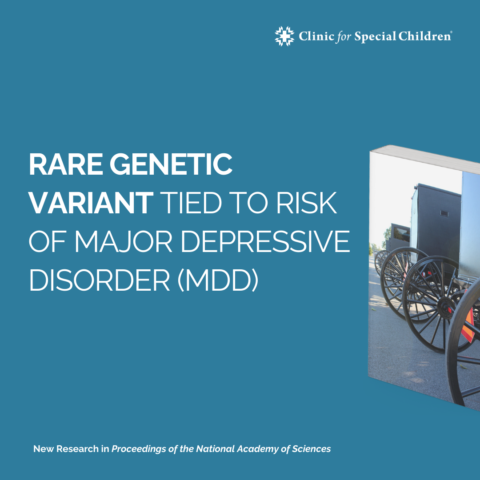Clinic researchers and collaborators tie genetic variant to risk of major depressive disorder
Posted on April 15, 2025
 In a published paper released today in Proceedings of the National Academy of Sciences, Clinic for Special Children researchers and collaborators from Columbia University and Regeneron Genetics Center discover a rare mutation in a gene that increases the risk of major depressive disorder.
In a published paper released today in Proceedings of the National Academy of Sciences, Clinic for Special Children researchers and collaborators from Columbia University and Regeneron Genetics Center discover a rare mutation in a gene that increases the risk of major depressive disorder.
“Major depressive disorder is a leading cause of disability worldwide and can affect people from all communities and backgrounds. Working closely with partners at Columbia University and Regeneron Genetics Center, the Clinic for Special Children research team discovered a rare mutation in a gene called GPR156 that increases susceptibility to major depression nearly three-fold and can be passed down through the generations. We found that GPR156 is expressed in a deep part of the brain called the medial habenula, which is known to play a crucial role in behavioral responses to stress. This work deepens our understanding of the causes of depression and introduces a new target for its treatment,” shares Dr. Kevin A. Strauss, Head of Therapeutic Development at the Clinic for Special Children.
Read the paper HERE
Read the press release HERE
